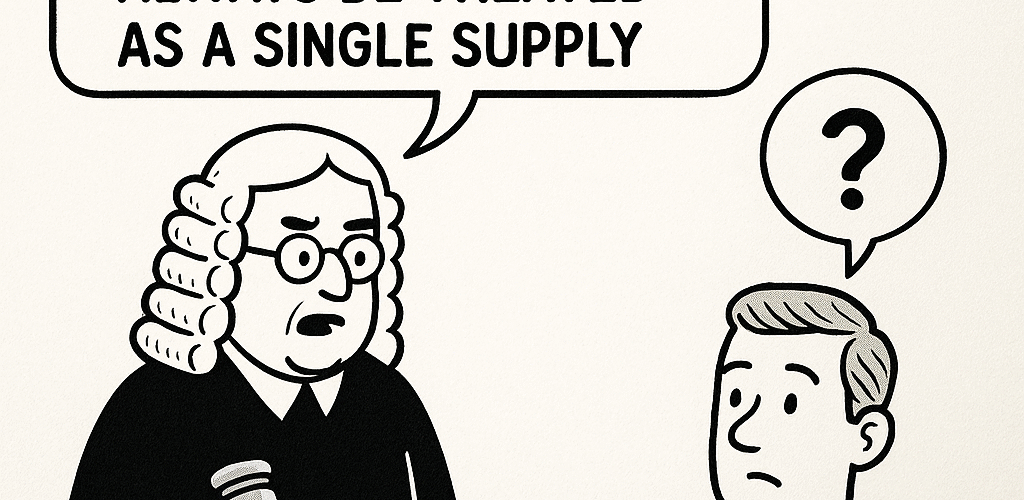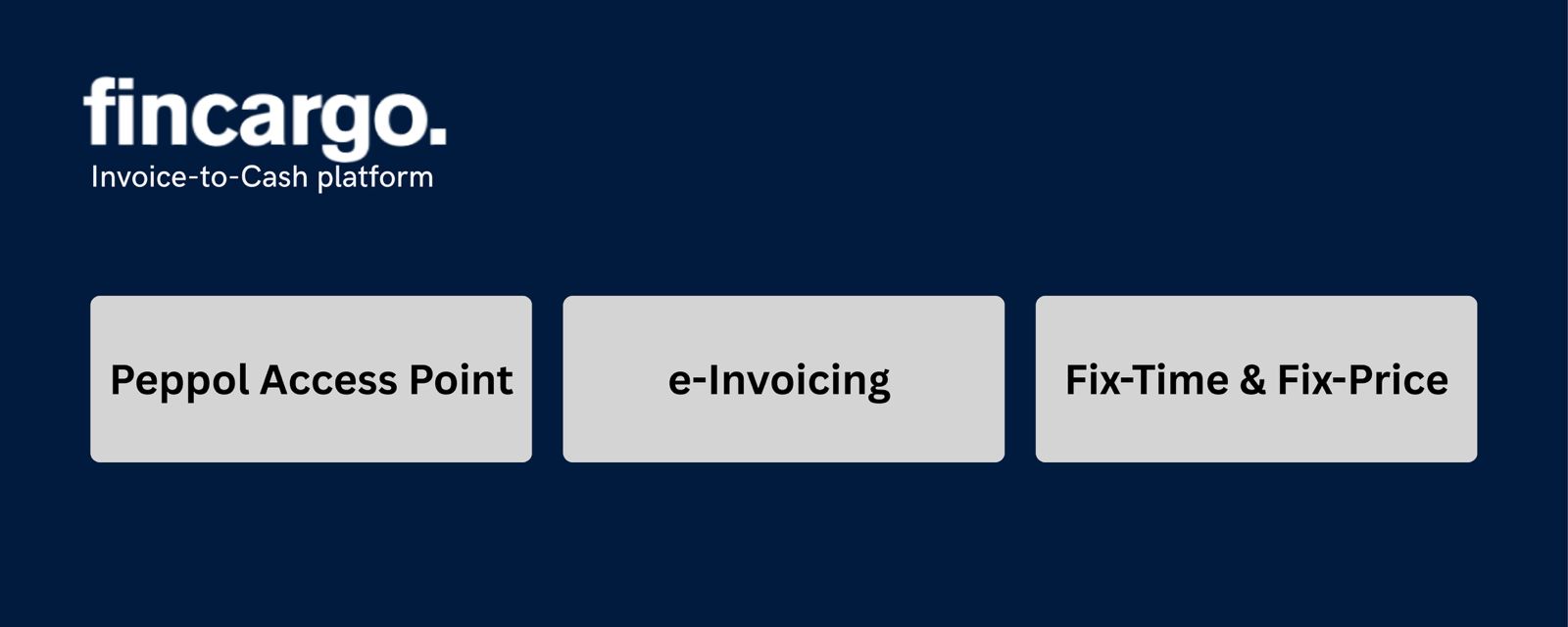Analysis of the CJEU ruling in Högkullen AB (C-808/23) concerning the determination of “normal value” for VAT purposes in intra-group service provisions. 1.
Executive Summary
The Högkullen AB (C-808/23) case clarifies the interpretation of Articles 72 and 80 of the EU VAT Directive (2006/112/CE) regarding the determination of “normal value” for services provided within a corporate group, specifically from a parent company to its subsidiaries. The core dispute was whether a parent company’s active management services to its subsidiaries should always be treated as a single, unique intra-group service for which no market comparable exists, thereby forcing the use of a cost-based valuation method.
The Court of Justice of the European Union (CJEU) explicitly rejected the Swedish Tax Agency’s (Skatteverket) argument that such services always constitute a single, non-comparable supply. This ruling means that tax authorities cannot automatically exclude the market comparison method (Article 72, first paragraph) when determining the normal value of active management services provided by a parent company to its subsidiaries. The CJEU emphasised that services, even if provided jointly, must be assessed for their distinct and identifiable character. Consequently, the second preliminary question regarding the inclusion of shareholder costs in the cost base became moot and was not answered.
2. Background to the Case (Högkullen AB vs. Skatteverket)
Högkullen AB, a parent company of a real estate management group, provided various active management services to its subsidiaries in 2016. These services included “business management services, financial services, property management services, investment services, IT services, and personnel administration services.” Högkullen determined the consideration for these services using a “cost-plus method,” including a profit margin but excluding certain “shareholder costs” (e.g., annual accounts, audit, general assembly, fundraising, share issuance, stock market listing costs).
The Swedish Tax Agency (Skatteverket) disputed this valuation, contending that the services were invoiced “at a price below their ‘normal value’”. Skatteverket argued that the active management by a parent company was a “unique and coherent single service” with “no comparable equivalent existed on the open market.” Therefore, it asserted that the “normal value should be determined based on all of Högkullen’s total costs for the year,” implying the application of the cost-based method under Article 72, second paragraph, of the VAT Directive. Högkullen, conversely, maintained that its services could be individually assessed and comparable services were available on the market, necessitating the application of the market comparison method under Article 72, first paragraph.
3. Relevant EU Legal Framework
The case revolved around the interpretation of key articles of Directive 2006/112/CE (the VAT Directive):
- Article 1(2): Establishes the principle of the common VAT system, where VAT is a general consumption tax proportional to the price of goods and services.
- Article 72: Defines “normal value.”
- First paragraph: Defines “normal value” as “the total amount that an acquirer or recipient… should pay, under conditions of free competition, to an independent supplier… for those specific services.” This is the market comparison method.
- Second paragraph: States that “When it is not possible to establish a comparable supply of goods or services,” normal value for services is “a total amount not less than the expenditure incurred by the taxable person for the supply of services.” This is the cost-based method.
- Article 73: Sets the general rule for the taxable amount, comprising “everything that constitutes the consideration obtained or to be obtained by the supplier… from the purchaser, recipient or a third party.”
- Article 80(1): Allows Member States to re-evaluate the taxable amount to the “normal value” to prevent “fraud or tax evasion.” This is permissible when:
- There are “familial or other close personal links, organisational, ownership, affiliation, financial or legal links” between parties.
- The “consideration is below the normal value.”
- The recipient “does not have the full right to deduct input VAT.” In this case, the first and third conditions were deemed fulfilled, leaving the determination of “normal value” as the central issue.
4. Main Themes and Key Findings
4.1. Single vs. Multiple Services & Comparability (First Preliminary Question)
- The Core Question: Can a tax authority always consider active management services provided by a parent company to its subsidiaries as a “single, unique supply” (a “prestation unique”) that precludes the use of the market comparison method (Article 72, first paragraph)?
- Skatteverket’s Argument: The active management of subsidiaries is a unique, coherent intra-group service with no free-market equivalent, hence necessitating the cost-based method.
- Högkullen’s Argument: Services should be individually assessed, and comparable market equivalents exist, supporting the use of the market comparison method.
- CJEU’s Interpretation of “Single Economic Supply”: The CJEU reiterated its established jurisprudence:
- Each operation is generally “distinct and independent” for VAT purposes (Para 27).
- A “single economic supply” exists when “several elements or acts supplied by the taxable person to the customer are so closely linked that they form, objectively, a single indivisible economic supply, the decomposition of which would be artificial” (Para 27).
- Accessory services have “no autonomous purpose” for the average consumer, serving “as a means to benefit in the best conditions from the principal service” (Para 29).
- The fact that a “single price is charged or that distinct prices are contractually stipulated is not decisive” (Para 30).
- CJEU’s Ruling on the First Question: The Court found that the services provided by Högkullen (business management, financial, property management, investment, IT, and personnel administration) cannot be considered by principle to be “so closely linked that they form, objectively, a single indivisible economic supply” (Para 32). The Court noted that “the said services, even if provided jointly, appear to have their own distinct and identifiable character” (Para 33).
- Key Finding: “Articles 72 and 80 of the VAT Directive must be interpreted as meaning that they oppose the tax authority always considering services provided by a parent company to its subsidiaries in the context of active management as constituting a single supply, thereby excluding the determination of the normal value of these services by means of the comparison method provided for in Article 72, first paragraph, of that Directive.” (Para 34, 40).
- Implication: Tax authorities bear the “burden of proof” to demonstrate that services are intrinsically linked to form an indivisible economic supply. They cannot automatically resort to the cost-based method for such services.
4.2. Inclusion of Shareholder Costs in “Costs” (Second Preliminary Question)
- The Core Question: If the cost-based method (Article 72, second paragraph) were to apply, should all of a parent company’s costs, including shareholder costs, be considered as costs for services provided to subsidiaries, especially when the parent’s sole activity is active management and it has fully deducted input VAT?
- Högkullen’s Argument: The “cost-plus method” ensures consideration at least equals costs incurred for services, implying shareholder costs should be excluded as they are not directly linked to service provision. Högkullen had excluded costs like “frais d’établissement des comptes annuels, d’audit et d’assemblée générale, ainsi que les frais de levée de fonds” and those related to new share issuance and stock market listing from its calculation (Para 9).
- Skatteverket’s Argument: All parent company costs, including capital mobilisation and shareholder costs, should be considered service costs when the parent’s sole activity is subsidiary management and it has fully deducted input VAT (Para 18).
- CJEU’s Decision: The CJEU “declined to answer the second preliminary question” (Para 38). This was because the second question was “contingent on the premise” that services would always be considered a single, non-comparable supply, which the Court rejected in its answer to the first question (Para 36-37).
- Implication: The question of specific cost inclusions for “normal value” determination under the cost-based method remains open, but its relevance is diminished if the market comparison method is applicable.
5. Implications of the Ruling
- Flexibility in Valuation: The ruling grants greater flexibility to companies in valuing intra-group services. Tax authorities can no longer automatically classify active management services as a single, non-comparable supply. They must undertake a more detailed assessment to determine if individual services are distinct and comparable to market equivalents.
- Emphasis on Economic Reality: The judgment reinforces the principle that VAT treatment should reflect the economic reality of transactions, preventing artificial decomposition or aggregation of services.
- Burden on Tax Authorities: The burden is implicitly placed on tax authorities to justify the application of the cost-based method by demonstrating that services are genuinely and objectively indivisible and lack market comparables.
- Shareholder Costs: While the issue of shareholder costs remains formally unanswered by this specific ruling, the primary finding suggests that if services can be benchmarked against market comparables, the intricate debate over specific cost inclusions becomes less central to the determination of “normal value” for VAT purposes. Companies should still be prepared to justify the exclusion of certain costs if they use a cost-based method in scenarios where no market comparable exists.
- Prevention of Abuse: Article 80 remains a critical anti-abuse provision, but its application requires a rigorous determination of “normal value” based on a thorough analysis of the services provided and market conditions, rather than a blanket assumption of non-comparability.
See also
- Join the Linkedin Group on ECJ/CJEU/General Court VAT Cases, click HERE
- VATupdate.com – Your FREE source of information on ECJ VAT Cases
Latest Posts in "European Union"
- Briefing document & Podcast: EU VAT Directive 2006/112/EC Explained: ”VAT Rates” (Art. 93-129a)
- Briefing document & Podcast: EU VAT Directive 2006/112/EC Explained: ”Deductions” (Art. 167-192)
- Briefing document & Podcast: EU VAT Directive 2006/112/EC Explained: ”Exemptions” (Art. 131-166)
- Less Known Facts from the EU VAT Gap Report
- Briefing document & Podcast: EU VAT Directive 2006/112/EC Explained: The concept of ”Taxable persons” (Art. 9-13)














